HUNTS POINT MARKET Optimizes Actions
August 20, 2020 | 24 min to read
The Hunts Point Terminal Market, the largest wholesale produce market globally, plays a crucial role in supplying a diverse range of buyers in the New York area, offering fresh produce 24/7. Its merchants demonstrate exemplary flexibility and expertise, adapting to customer needs, especially during crises like the COVID-19 pandemic. They serve as essential intermediaries, ensuring consistent product flow and fostering strong relationships with suppliers and buyers, thereby reinforcing the critical food supply chain for numerous retailers.

Originally printed in the July 2020 issue of Produce Business.
Answering the shifting needs of customers showcases merchants’ flexibility.
For more than 50 years, the wholesale merchants on the Hunts Point Terminal Market have played a vital role for suppliers of produce from around the world and for buyers in the nation’s largest city and beyond. The largest wholesale produce market in the world, Hunts Point is set on 113 acres with more than one million square feet of space. The 36 merchants on the market serve as a central repository for information and expertise on the produce scene.

Hunts Point is the largest resource for fresh produce in the Tri-State Area, according to Gabriela D’Arrigo, vice president of marketing and communications for D’Arrigo New York. “The reach that we have as a market is appealing to suppliers both domestically and some internationally,” she says.
“Not everybody can be everything to everybody, but Hunts Point encompasses a great deal of ability to supply many different wants and needs. We are vital because we have everything 24 hours a day, seven days a week, 52 weeks a year. We have a variety and quality no other market could possibly match.”
— Joel Fierman, Fierman Produce Exchange
Nick Pacia, chief executive and president of AJ Trucco, sees terminal markets, in general, as a key component of the ecosystem for specific sectors within the produce distribution system. “They are vital for many small independents, and their role is evolving every year more and more,” he says.
The market serves an integral purpose for the diverse New York City-area retailers. “We are able to help fill the pipeline for major retailers, grocery stores and restaurant groups all the way down to smaller stores, bodegas and delis,” says Thomas Tramutola, Jr., manager at A&J Produce Corp. “We work around the clock to ensure we deliver the highest quality product to our customers.”


Hunts Point is a steady connection between the farm and every type of buyer, explains Jim Margiotta, owner/president of J. Margiotta Co. “Whether they’re the biggest or smallest retailer, a restaurant, wholesaler or someone buying for use at home, we serve them all. We break down giant quantities of produce and distribute it in the way that’s most useful right across the board. It’s impressive in terms of what we do as far as the market—how we provide consistently in all circumstances.”
Hunts Point has always been an integral part of sourcing for 3 Guys from Brooklyn, an independent open air, old school corner market.
Approximately 95% of our produce comes from Hunts Point,” says Philip Penta, managing partner.
The Hunts Point Market is especially key for urban areas because a large segment of stores need a market to keep them supplied, explains Joel Fierman, president of Fierman Produce Exchange. “Not everybody can be everything to everybody, but Hunts Point encompasses a great deal of ability to supply many different wants and needs. We are vital because we have everything 24 hours a day, seven days a week, 52 weeks a year. We have a variety and quality no other market could possibly match.”
In Fair Weather Or Foul
As experts on the ups, downs and changes in the marketplace, the merchants of Hunts Point shine in any weather or situation. “The market is fundamental, whether there is a crisis or just a regular day,” says Michael Armata, fourth generation and buyer at E. Armata. “There is so much volume coming in and out of this market daily with a large variety of items to choose from. Even for a large retailer that buys a lot direct, we offer the unique option for them to be able to fill any ‘shorts’ they have in a timely fashion.”
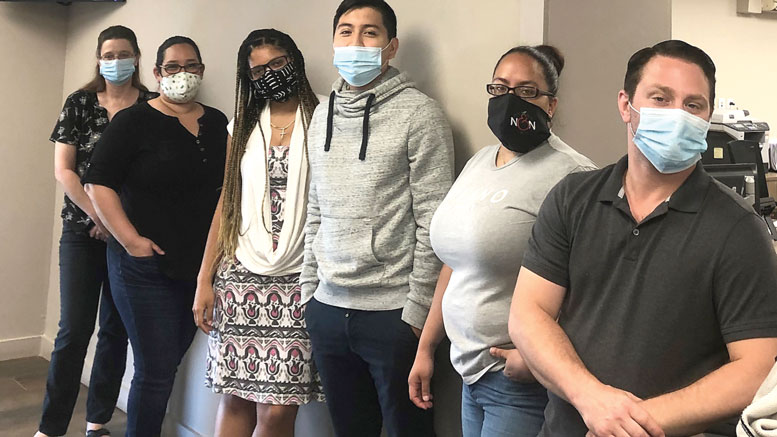
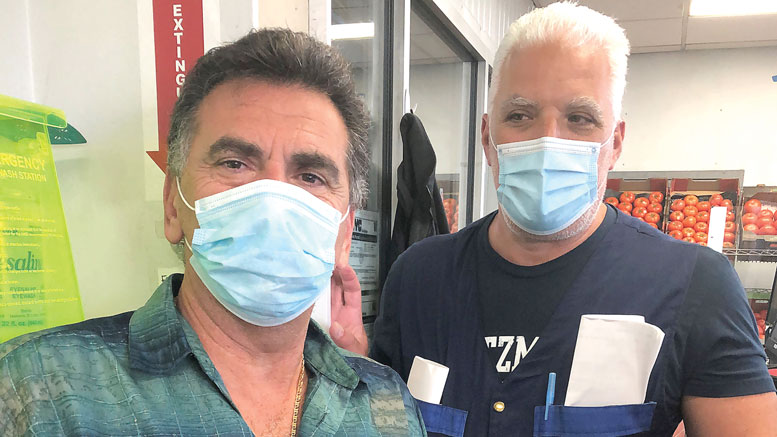
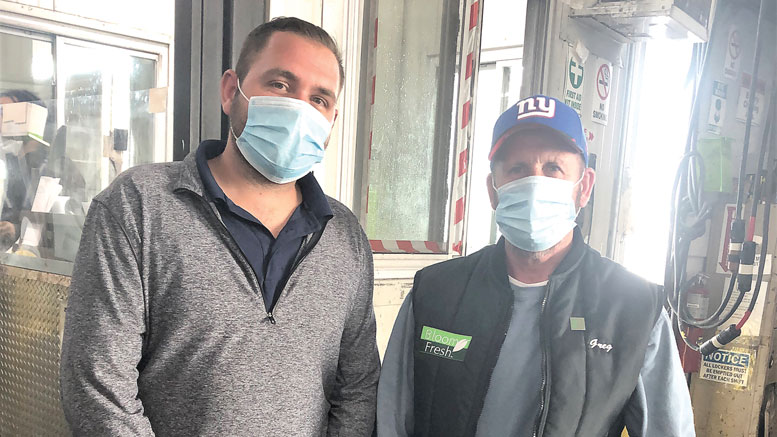
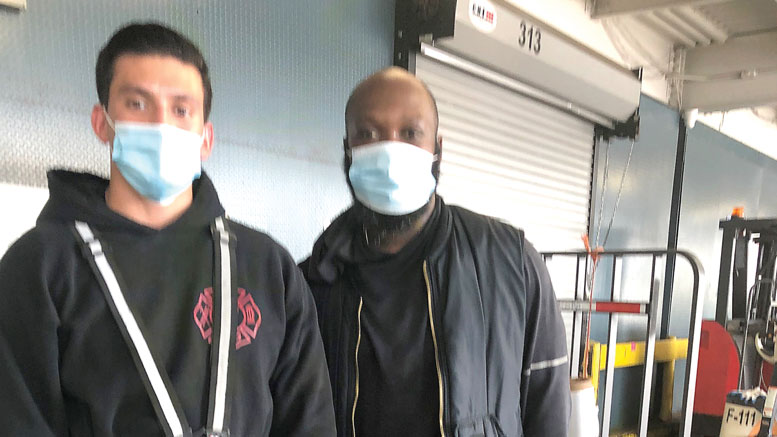
Hunts Point merchants excel in meeting specific customer needs, regardless of circumstances. “Our location and fast-paced business style allows us to service so many businesses,” says Stefanie Katzman, executive vice president at S. Katzman Produce. “In times like these, when everyone is struggling, it is one piece of the puzzle we can help with. Getting food from the farmers to the fork is what we do best.”
During a crisis, buyers look to Hunts Point for more than just produce, relates Charlie DiMaggio, president of FresCo LLC. “We have become the hub of important information often shared with the buyers before the general public,” he says. “We share what’s happening on the farm level as well as future availability of product. For a worldwide crisis, you can imagine it’s a tremendous amount of data that has to be collected and interrupted, so we can guide ourselves and our customers.”
“The vendors on Hunts Point have the warehouse infrastructure and distribution capabilities to be a steady supply of produce to a vast array of consumers as well as fill in gaps of other companies’ supply chain.”
— Evan Kazan, Target Interstate Systems
Hunts Point was instrumental as a reliable source for four-store retailer Ferreira Foodtown in Jackson Heights, NY, reports Jason Ferreira, chief executive. “Many warehouses were hurt by the logistical consequences of the COVID outbreak, and the vendors in Hunts Point were able to accommodate our needs as grocers,” he says.
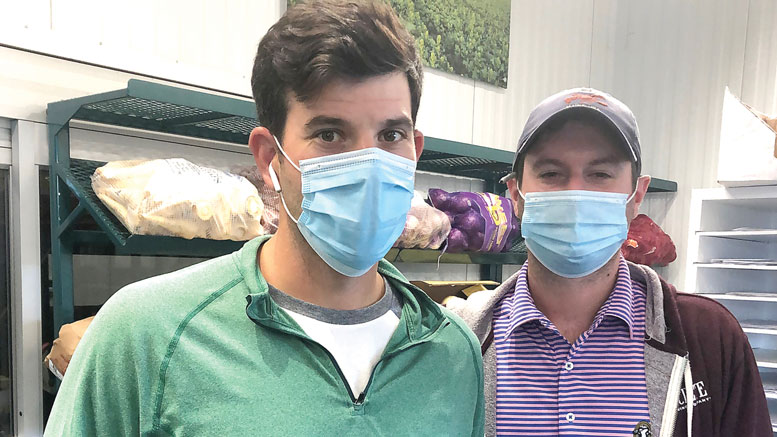
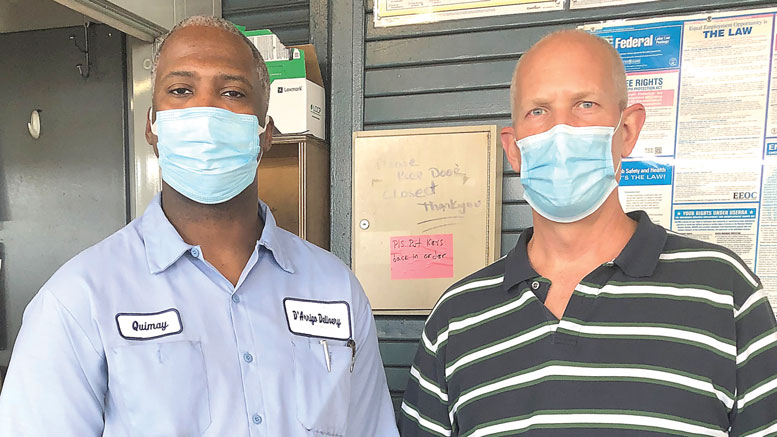
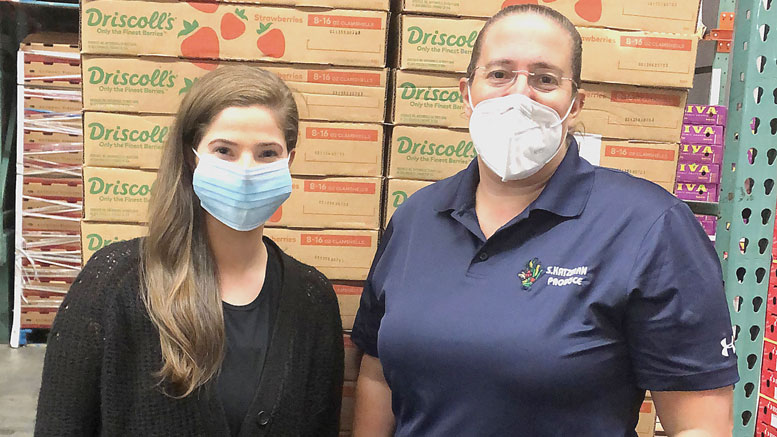
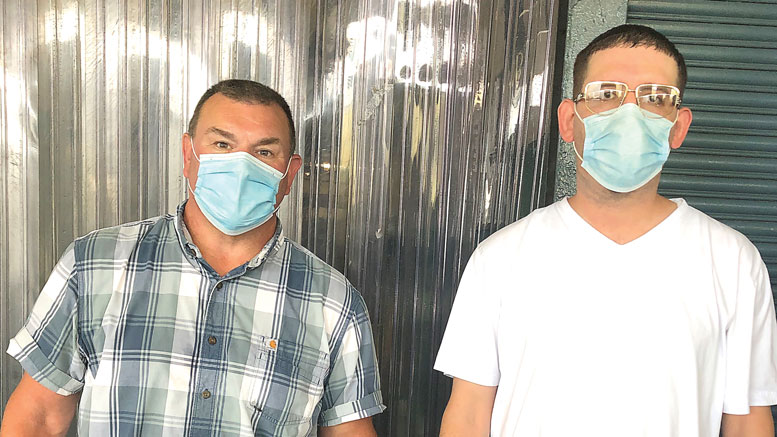
The physical resources available at Hunts Point as well as logistical support led to a critical role. “The vendors on Hunts Point have the warehouse infrastructure and distribution capabilities to be a steady supply of produce to a vast array of consumers as well as fill in gaps of other companies’ supply chain,” says Evan Kazan, vice president of Target Interstate Systems, a transportation provider located on the Hunts Point Market. “They also donate an enormous amount of food to charities and food banks, which is always important, but even more so now.”
The pandemic emphasized the capabilities of the market, asserts D’Arrigo. “It showcased our flexibility due to the different ways we are able to distribute produce to those in need,” she says.
Times like these prove how essential terminal markets are, agrees Tramutola. “We’re an essential spoke of the food industry,” he says. “We had everybody working continuously through the pandemic and were dedicated to getting every customer what they needed and then some.”
Serving Buyer Needs
The Hunts Point Market makes for an ideal resource for the many diverse New York Metro Area buyers, as it encompasses independent stores, street vendors, restaurant purveyors, jobbers and even larger retail operations stretching throughout the states of New York, New Jersey, Connecticut and beyond. “The customers are in an advantageous position because they don’t have to put their eggs in one basket,” says Tramutola. “The market gives the customers a chance to shop around and get different pricing, packaging options and grading. The buyers have a great opportunity to get a deal on each item or to get the exact specifications or quality attributes on an item they need.”
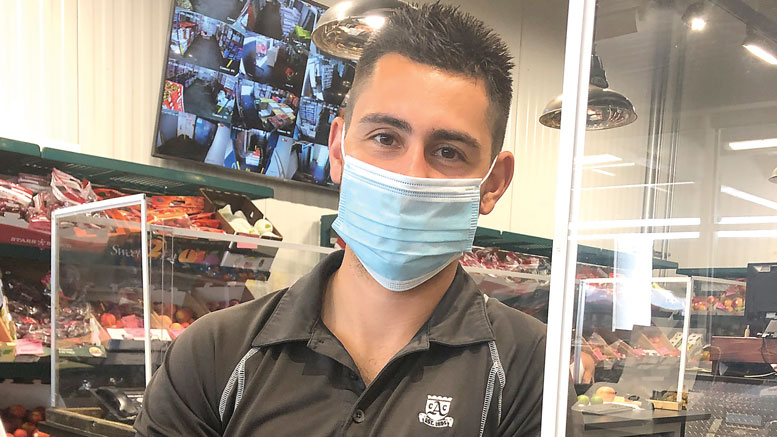
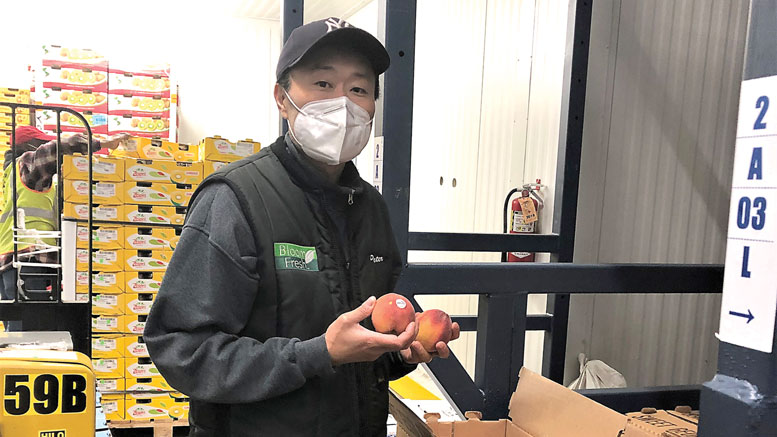
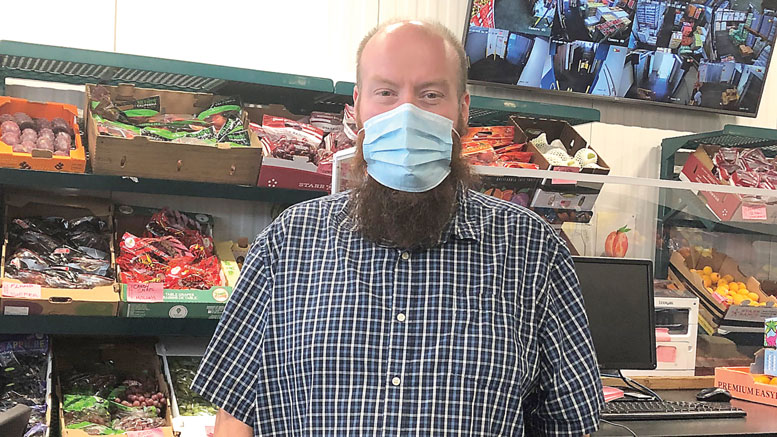
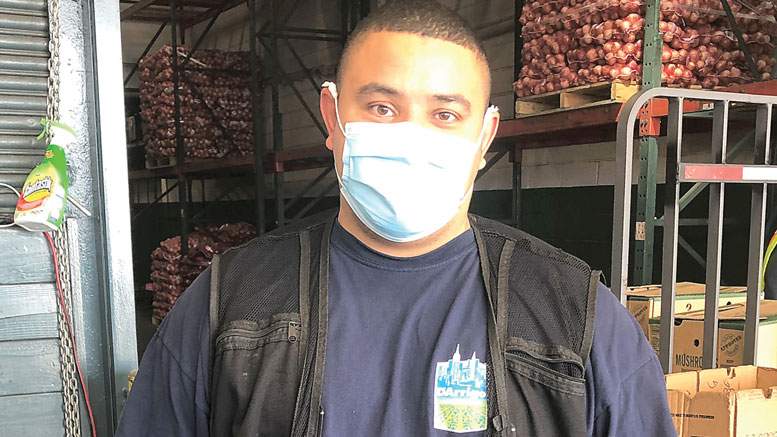
Again and again, as reported by the customers of the market and the vendors who supply services to the market, the value of such customer interactions was emphasized by the recent crisis. “As people rushed to the supermarkets to stock up on food, there was a gap in the supply chain for supermarkets, which caused supermarkets to then use the wholesale market to replenish their inventory,” says Kazan.
Hunts Point has always been vital to Morton Williams, which has 16 stores throughout Manhattan. “But they are even more so now,” says Marc Goldman, produce director “During the crisis, other vendors were short on product. Out of everyone, Hunts Point had the most consistent flow of product.”

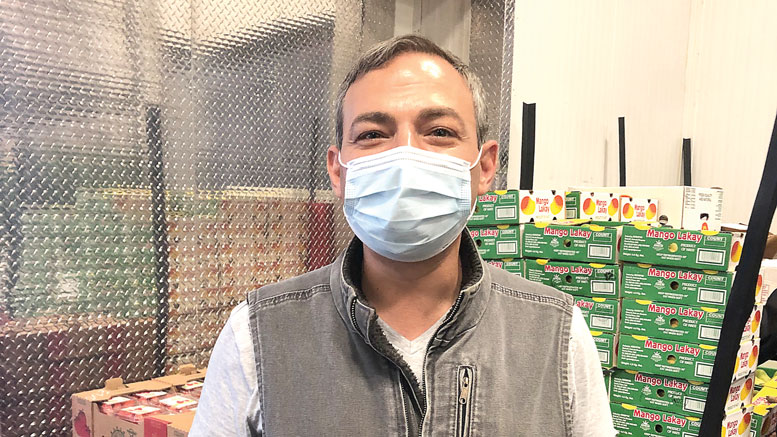
Goldman had already established a system using Hunts Point’s capabilities and reports proven success even during the crisis. “About eight months ago, I started bringing in product direct and using a house in Hunts Point to warehouse the product,” he says. “We have a buyer at Hunts Point every day. We remained fully stocked from day one—our system worked.”
“The market gives the customers a chance to shop around and get different pricing, packaging options and grading. The buyers have a great opportunity to get a deal on each item or to get the exact specifications or quality attributes on an item they need.”
— Thomas Tramutola Jr., A&J Produce
Hunts Point’s diversity of product also presents a significant advantage to buyers. The buyer shopping Hunts Point can choose to be as diversified as he or she wants, explains Margiotta. “A great example recently was related to the closures of the foodservice outlets. We saw a lot of customers change their business model focus. They had been our customers for foodservice procurement, and when they changed to a retail focus, they realized they could still source from us but just buy different items. Though they changed their sales model, they could keep their same procurement.”
Crucial Expertise
The collective knowledge exhibited by the Hunts Point companies, many of whom are fourth and fifth generation, represents an unprecedented information bank. “There’s a reason why we’re third and fourth generation,” says Rubin. “We’ve proven it time and time again, and we’ve really proven it during this crisis. We know best because we’re in the trenches every day. It’s basically like if you wanted financial advice, you’d want to talk to Warren Buffet. For produce advice, you come here.”
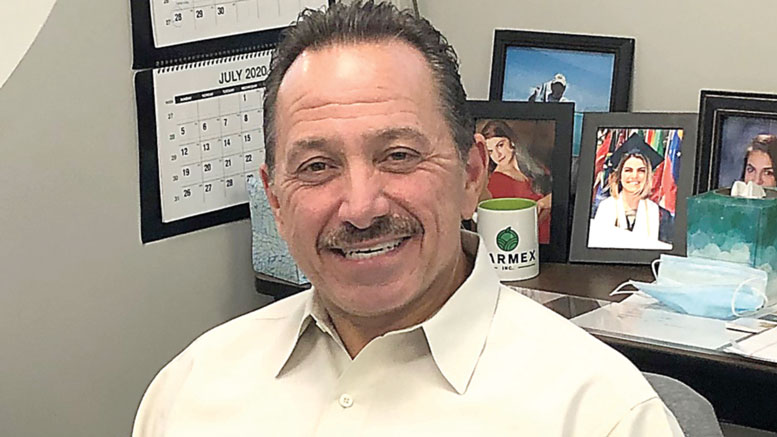
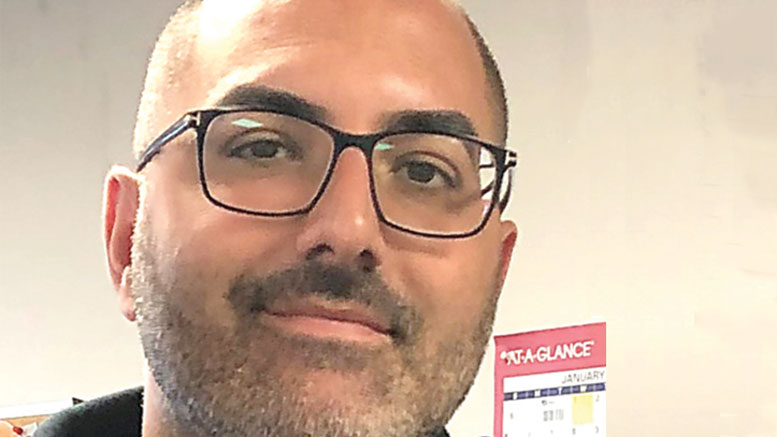


The knowledge that comes out of Hunts Point with the multi-generational companies is the same as a farmer passing on to his child how the farm works, describes Margiotta. “It’s families teaching the next generation all about the produce—how it grows, how it’s shipped, how it’s handled and how it’s sold and then passing that onto the customer,” he says.
Market merchants hone their expertise by being in the trenches every day. “We’re on the front lines,” says Nathel. “I’m in the warehouse, talking with the customers and talking with our sales people. I see the product. I see the trends. I’m not sitting in an office 20 miles away from the warehouse without touch on the produce. We’re on top of things.”
Knowledge of the business is also built mutually through merchant interactions with customers, according to Scott Zimmerman, buying partner at 3 Guys from Brooklyn. “The Hunts Point companies develop additional expertise from having relationships with retailers in the marketplace,” he says. “They know what I use, what I carry and what I need.” [Editor’s Note: See related article on 3 Guys from Brooklyn.]
The Hunts Point vendors and brokers have their fingers on the pulse of the marketplace, agrees Ferreira. “They know which items are reasonably priced and in the right quality and freshness conditions,” he says. “They were able to deliver, not only in sending us our purchases, but also in guiding us in our ordering decisions.”
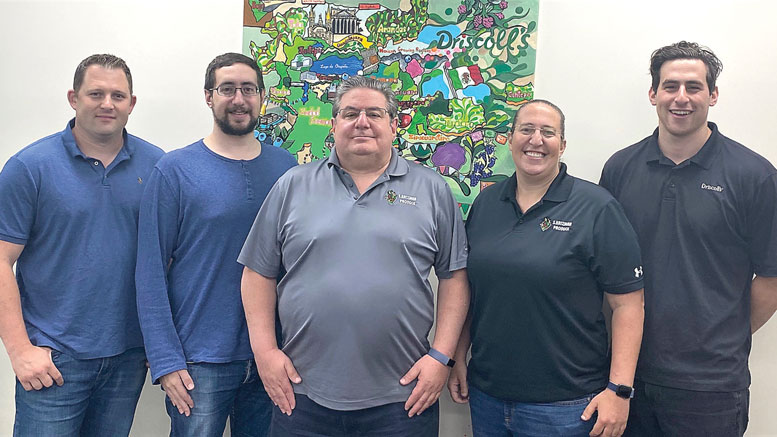
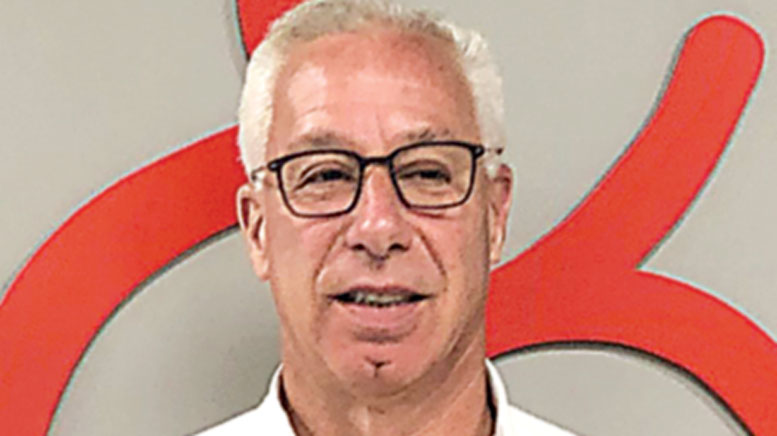


Such knowledge is a key benefit of the market, notes Tramutola. “We source the product, we know where it comes from, we know what’s in season, what the transportation rates are, what the right pricing is,” he says. “We make sure the customer is taken care of in terms of quality, pricing and availability. Working in this industry, you have to understand a lot of information and aspects from transportation, to growing, to market. It’s a complex formula. It’s not a job—it’s a lifestyle.”
Fierman makes no bones about the advantage of the market’s flexibility. “If stores direct-buy a little less and shop Hunts Point a little more, they’d probably be more profitable,” he says.
Market business has always been one of communication, according to Katzman. “Every day we spend hours talking to farmers around the world to get a sense of growing conditions, supply chain volume and a glimpse into the future,” she says. “Then, of course, we get a good picture of the other side of things from talking to our customers. These conversations never stop because our business never stops.”

Need For Flexibility
Another asset showcasing how Hunts Point merchants best serve customers revolves around flexibility, both for suppliers and buyers. “We run a tight ship and can really act on a dime,” says Rubin. “We’re all extremely diversified. None of my customers make up a single huge percentage of my sales, so we can be nimble when things happen in the market.”
Due to their unique position in the middle, merchants display flexibility in helping buyers and suppliers find solutions to issues. “We can come up with an idea and reach out to both sides,” says Nathel. “It’s an exchange between us, the shippers and the customers. We communicate with the shippers to ask what they can do; then we go to the customer to ask them.”
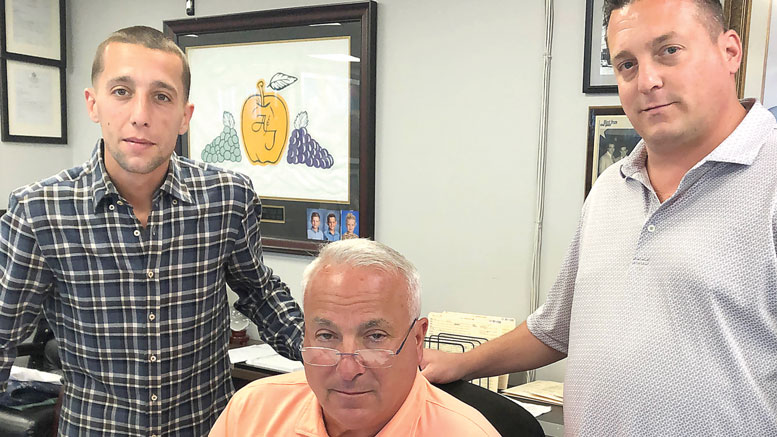
Hunts Point provides an adaptable distribution center for retailers. “In a major metro area like New York, the terminal market is an important hub,” says Ronnie Cohen, principal for Vision Import Group in Hackensack, NJ. “A lot of smaller, independents or groups of companies use Hunts Point as their cold storage—it’s essentially their fresh produce warehouse.”
Retailers who take advantage of this flexibility find themselves with an advantage. “Although many retailers have the ability to buy direct, it does not mean it’s always the best option,” says Katzman. “Daily arrivals of fresh supply, a variety of products and brands, the ability to handle under-supply and over-supply situations and a central hub for everything are just a few of the services we provide.”
“During the crisis, other vendors were short on product. Out of everyone, Hunts Point had the most consistent flow of product.”
— Marc Goldman, Morton Williams
During times of crisis, having this flexibility is even more important. “The wholesale market was able to remain open and keep the food supply chain moving during the recent crisis,” says Katzman. “If one farmer had to close up, then we called another to keep our supply coming. If one retailer or restaurant had to close up, then we found another way to get the fruits and vegetables onto people’s plates.”
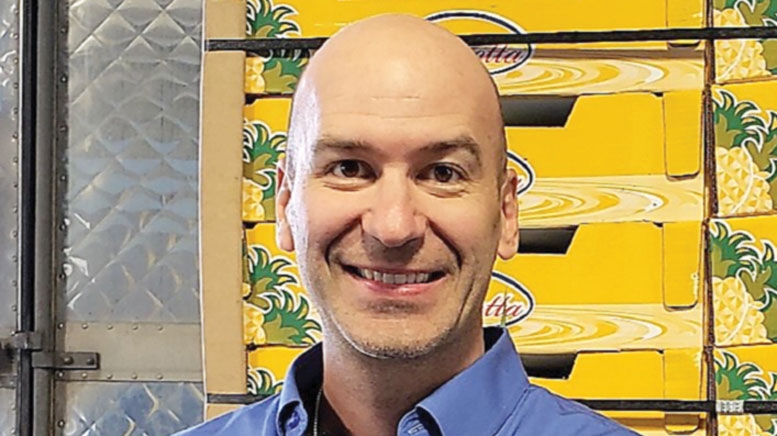

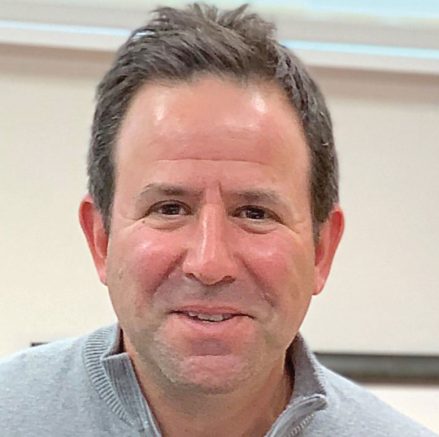
Goldman reports how Morton Williams benefited from using the market. “Our supply chain was flexible, and we had the contacts and knowledge to be able to react,” he says. “I saw chain stores that were empty and still haven’t caught up. I was walking into other stores with empty shelves when we were fully stocked.”
Zimmerman says 3 Guys from Brooklyn remained fully stocked during most of the crisis time because of its sourcing from Hunts Point. “They continued to operate and enabled us to consistently supply our customers,” he says. “The flexibility we had was shown by the fact that if some items were short, we could easily substitute something else.”

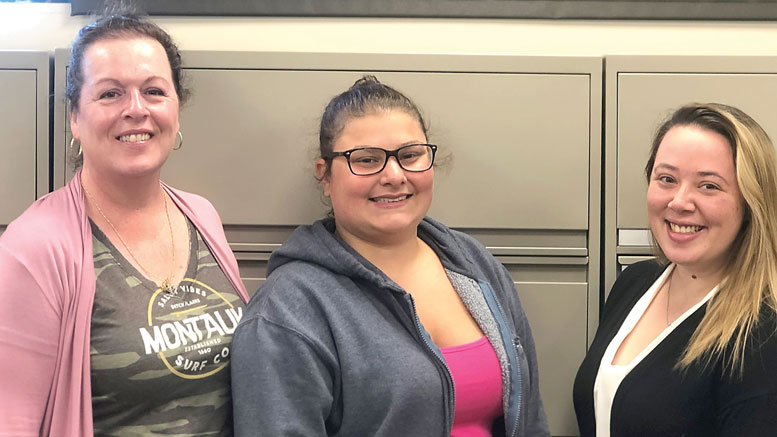
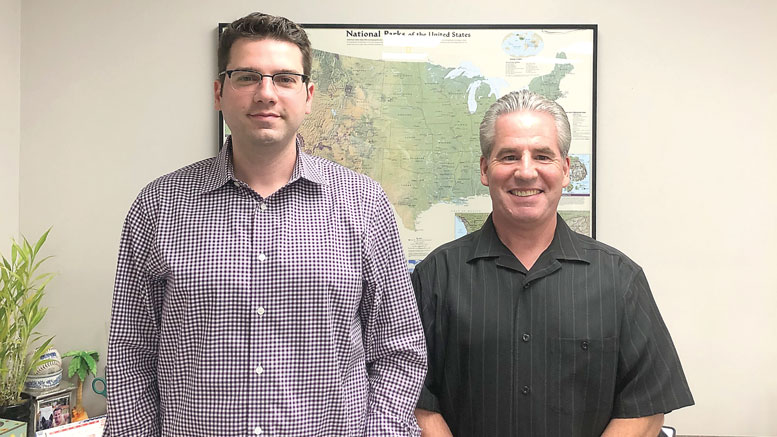

On the other hand, explains Nathel, when a store buys direct, they’re locked into specific produce. “If they don’t sell it, it’s still in their DC, and the stores eventually have to move it,” he says. “In the case of Hunts Point, we are their warehouse. Stores can purchase as-needed every day or week. The retailers that were buying from the market had all they needed when COVID-19 hit, and they had good product. Many retailers supplied by their DCs saw days when there was limited produce.”
Crisis Value
Expertise and guidance become even more valuable in times of crisis. “The combination of information from the supplier to the wholesaler and vice versa is crucial, especially during a crisis,” says Michael Armata of E. Armata. “Business has changed. Retailers can be extremely busy or extremely quiet with no rhyme or reason as to why. As wholesalers, it is our job to work with our shippers to get as creative as possible to do the best job for them as well as give the proper information to our customers.”
The market’s drive also equates to the timeliness and efficiency the merchants bring in getting things done, asserts Cary Rubin of Rubin Brothers. “Buyers who use the market for their supply have better profits, because we can steer them in the right direction on markets,” he says.
Retailers who use the market saw such expertise amplified during the recent crisis. “There’s no setting in the computer for ‘pandemic ordering’,” says Marc Goldman of Morton Williams. “For someone like me, we can jump on it and react as fast with our suppliers,” he says. “After 40 years, all the experience we have with them comes in handy.”
Joel Fierman of Fierman Produce Exchange notes the challenge is in figuring out how much product to bring in during a crisis such as the pandemic. “The retail business was significant but with changing buying patterns,” he says. “Then we had the drop in business from foodservice. We have to rely on our know-how and experience to combat such unknowns. It just goes to show the ingenuity and intuition of the merchants here was able to keep everyone supplied.”
Taking Care Of Shippers
Hunts Point also provides crucial support, market intelligence and outlets for shippers. “We’re right in the middle of the supply chain, so it’s good for the shipper, and it’s good for our customers,” says Ira Nathel, president and co-owner of Nathel & Nathel.
Margiotta’s Jimmy Margiotta emphasizes the value the market provides to the farm because of its wide reach. “We can take so many different products that other buying destinations would have a limited audience for,” he says. “This gives our shippers a greater potential outlet for all of their products.”
Market wholesalers link important supply-side information at shipping point with the needs of the marketplace. “We serve as a bridge to connect partners on both sides,” says Nick Pacia of A.J. Trucco. “We are in constant communication with both shippers and buyers. And we offer new product when we see both sides could benefit.”
A&J’s Thomas Tramutola Jr. looks at the business as a balancing act of doing the best for shippers and the best for customers, all while keeping product rotating. “When stuff is abundant, we want to make sure product is moving and being sold,” he says. “When stuff is scarce, we want to be sure we can still get it.”
The confident relationships developed by market wholesalers with their shippers reap benefit in all situations. “We strive to have long-lasting relationships with our shippers,” says Michael Armata of E. Armata. “During a crisis such as COVID, these relationships shine through, as everyone works together to not only keep movement alive, but to feed families all over the tri-state area and further.”
Charlie DiMaggio of FresCo reports having seen an even more open line of communication with suppliers during the crisis. “The various sales pitches often heard over and over went by the way side,” he says. “The usual banter was taken over by a more serious tone and one that united the supplier and us in a way I have never seen before. Our mission is to feed the public and work together so no one supplier or buyer is hurt dramatically.”
Market companies pride themselves on taking care of their shippers. “Our shippers can count on us as part of their growing strategy,” says Cary Rubin, vice president at Rubin Bros. Produce Corp. “We’re consistent week in and week out. When they have supply surplus, we’re clearly an outlet for them. We can move product quickly and keep the supply chain moving. For example, the news had stories about farmers dumping their product during the COVID crisis; none of my shippers had to dump their product—we found a home for it.”
Joel Fierman of Fierman Produce Exchange emphasizes the importance of standing by his shippers. “We haven’t run away from our obligations—my shippers got paid,” he says. “We’re happy to have provided the service we did and do what we do best. I hope the shippers, and the rest of the country, appreciate what we do here. While everyone else was shutting down, we were still here.”
FUTURE ENHANCEMENTS
Market companies plan and invest for even greater feats.
Hunts Point merchants continue to innovate and develop new ways to serve customers. The wholesalers are driven by the desire to find solutions for the marketplace. “We continue to build on our long history of meeting market needs with new ideas,” says Stefanie Katzman, executive vice president at S. Katzman Produce. “A great example of this is our Hamona coconuts and their shaved-down, straw-penetrable shell. We are stepping up that item. We designed a new carrying case for it—a three-pack carrier that adds even more convenience to this healthy and delicious snack. We’re always searching out these types of value-added ideas in both products and services to help our customers and shippers succeed.”
E. Armata continues to expand its fleet of trucks to accommodate more deliveries. “As we grow our business, we want our customers to grow theirs as well,” says Michael Armata, fourth generation and buyer. Being in the industry for more than 100 years, E. Armata understands quality, price and, especially in a time like this, safe service.”
J. Margiotta Co. continues to expand its trucking line and deliveries. “Delivery has been in high demand, and it’s been very good for us,” says Jimmy Margiotta, owner/president.
As retailers look to differentiate their stores with more private label, Margiotta also offers expanded branding opportunities for customers. “We’re offering customization with our labels to retailers who are interested in a customized-label program,” he says.
AJ Trucco has its own distribution facility in Vineland, NJ, equipped with state-of-the-art packing lines and managed by a knowledgeable team. “This creates a unique and new relationship with our partners,” says Nick Pacia, chief executive and president. “Our packinghouses at source, alongside our new distribution and packing facility here in New Jersey, complete our vertical integration of the supply chain. We are proud to have a new facility that stands out in the kiwifruit industry with state-of-the-art packing and cold storage.”
In the past few months, Trucco has focused resources on creating a new sustainable, 100% plastic-free, recyclable pack style for its KiwiStar kiwifruit. “We have created a KiwiStar Cares initiative to support environmental efforts to reduce waste and, more specifically, plastic pollution in oceans,” says Pacia.
Hunts Point merchants continue to report increased potential for deliveries, organics and packaging. “We do a lot of trucking,” says Ira Nathel, president and co-owner of Nathel & Nathel. “We’re also moving a lot of organic product. A lot of it is bagged so that fits with the current trend. We believe the market is trending toward more packaged product.”
A&J Produce Corp. continually updates its facility and transportation fleet. “We must ensure our deliveries are in good standing and with good timing,” says Thomas Tramutola, Jr., manager. “Also, we emphasize product branding so we can showcase what we do and stand behind it.”
A Matter Of Trust
At some point, the advantages of knowledge, flexibility and communication are all encapsulated in trust. “Customers come to trust the Hunts Point merchants to know best and do the best for them,” says Ira Nathel at Nathel & Nathel. “Especially for customers who don’t come in; we are their eyes.”
Relationships are critical, concurs Scott Zimmerman from 3 Guys from Brooklyn. “I’ve been doing business there my whole life and my father did before that,” he says. “Our relationships go back generations. We feel comfortable working with people we’ve been working with our whole life.”
Margiotta’s Jim Margiotta notes shippers and customers want to feel trust. “And they want a good experience time and time again because it’s how they build trust with their customer,” he says. “Everything we do incorporates the trust issue, so our buyers can trust they’ve come to the right place, to get the right quality at the right price.”
Again, this value was greatly accentuated in the beginning of the crisis. “During the crisis, we saw a shift to more customers ordering over the phone as opposed to coming to the market in person,” says Stefanie Katzman of S. Katzman.
Any change or disruption in normal business procedures leads to greater communication because of the uncertainty, explains Thomas Tramutola Jr., of A&J Produce. “We saw a lot more phone calls, emails and cross-referencing among divisions,” he says.
Jason Ferreira of Ferreira Foodtown highlights his level of trust in the small chain’s Hunts Point suppliers. “We relied more on the Hunts Point Market than on other large warehouses,” he says. “We won’t forget it.”
For Rubin Bros. as a whole, the company has looked at these past few months as a good benchmark test to how resilient the company is. “It’s proven we’re set up well,” says Cary Rubin. “It’s allowed us to see we’re in a good position to deal with anything that gets thrown at us. You can make contingency plans all you want, but until something happens, you really don’t get a good feeling for how your company is set up.”
Merchants on Hunts Point emphasize that retailers of all levels and sizes can count on the trust built with the family businesses on the market.
“We are very proud of all of our employees’ hard work and dedication,” says Michael Armata of E. Armata. “It’s an honor to be able to work with people who take such pride in their work.”
Katzman believes the biggest highlight is how everyone was able to ban together and get the job done. “Throughout all of it, we did not miss one second of operations,” she says. “Farmers, truckers, customers and our amazing staff worked together and made sure the food supply kept coming. The Hunts Point Produce Market will always make sure to take care of its community and the surrounding areas with fresh fruits and vegetables no matter what.”
5 of 17 article in Produce Business August 2020

